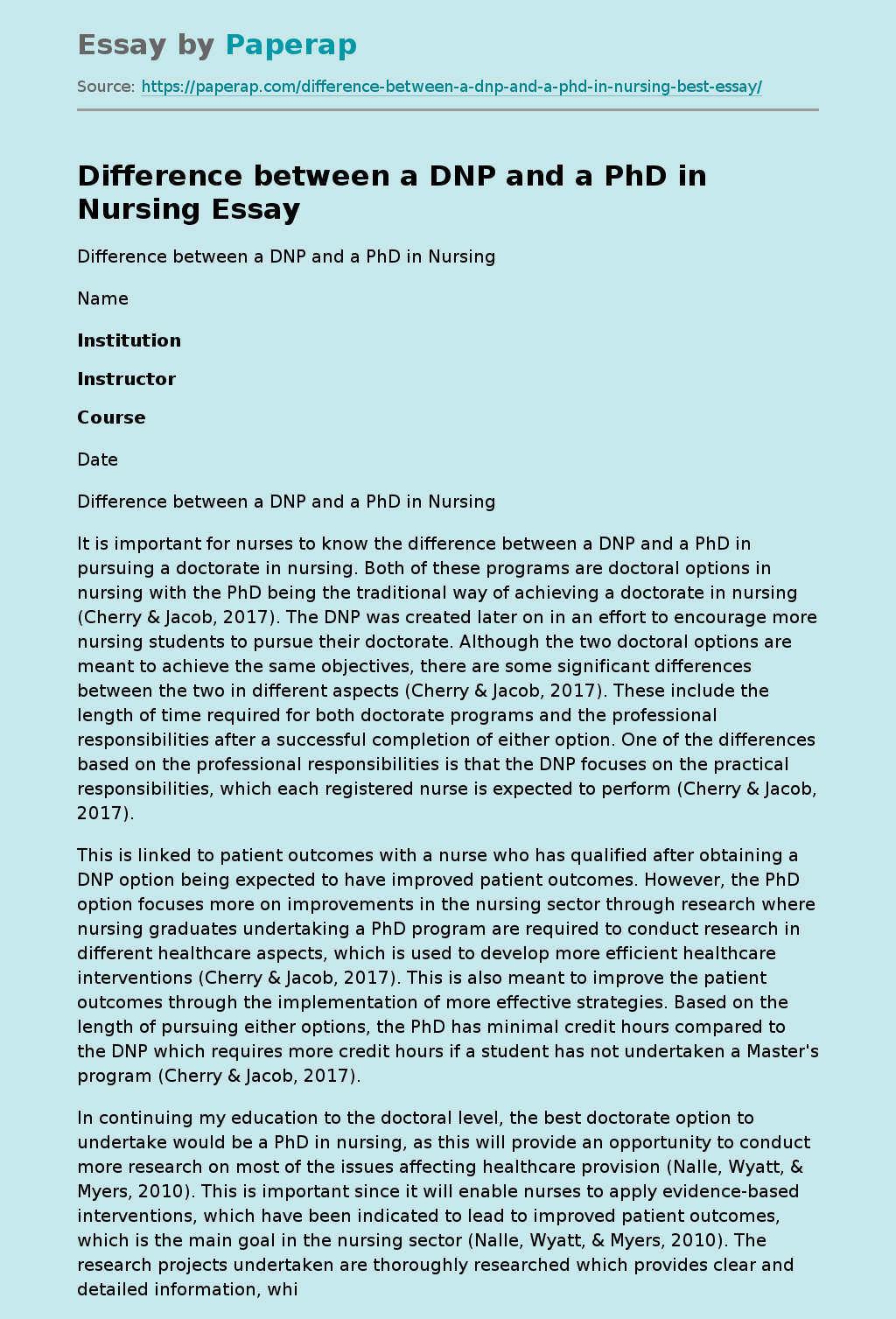Difference between a DNP and a PhD in Nursing
Difference between a DNP and a PhD in Nursing
Name
Institution
Instructor
Course
Date
Difference between a DNP and a PhD in Nursing
It is important for nurses to know the difference between a DNP and a PhD in pursuing a doctorate in nursing. Both of these programs are doctoral options in nursing with the PhD being the traditional way of achieving a doctorate in nursing (Cherry & Jacob, 2017).
The DNP was created later on in an effort to encourage more nursing students to pursue their doctorate.
Although the two doctoral options are meant to achieve the same objectives, there are some significant differences between the two in different aspects (Cherry & Jacob, 2017). These include the length of time required for both doctorate programs and the professional responsibilities after a successful completion of either option. One of the differences based on the professional responsibilities is that the DNP focuses on the practical responsibilities, which each registered nurse is expected to perform (Cherry & Jacob, 2017).
This is linked to patient outcomes with a nurse who has qualified after obtaining a DNP option being expected to have improved patient outcomes. However, the PhD option focuses more on improvements in the nursing sector through research where nursing graduates undertaking a PhD program are required to conduct research in different healthcare aspects, which is used to develop more efficient healthcare interventions (Cherry & Jacob, 2017). This is also meant to improve the patient outcomes through the implementation of more effective strategies. Based on the length of pursuing either options, the PhD has minimal credit hours compared to the DNP which requires more credit hours if a student has not undertaken a Master’s program (Cherry & Jacob, 2017).
In continuing my education to the doctoral level, the best doctorate option to undertake would be a PhD in nursing, as this will provide an opportunity to conduct more research on most of the issues affecting healthcare provision (Nalle, Wyatt, & Myers, 2010). This is important since it will enable nurses to apply evidence-based interventions, which have been indicated to lead to improved patient outcomes, which is the main goal in the nursing sector (Nalle, Wyatt, & Myers, 2010). The research projects undertaken are thoroughly researched which provides clear and detailed information, which can be used to make important decisions during some of the challenging situations in the nursing profession (Nalle, Wyatt, & Myers, 2010).
References
Cherry, B., & Jacob, S. R. (2017). Contemporary nursing: Issues, trends & management. St. Louis, Missouri: Elsevier.
Nalle, M., Wyatt, T., & Myers, C. (2010). Continuing Education Needs of Nurses in a Voluntary Continuing Nursing Education State. Journal of Continuing Education in Nursing. 41(3):107-115.
Difference between a DNP and a PhD in Nursing. (2019, Dec 11). Retrieved from https://paperap.com/difference-between-a-dnp-and-a-phd-in-nursing-best-essay/

